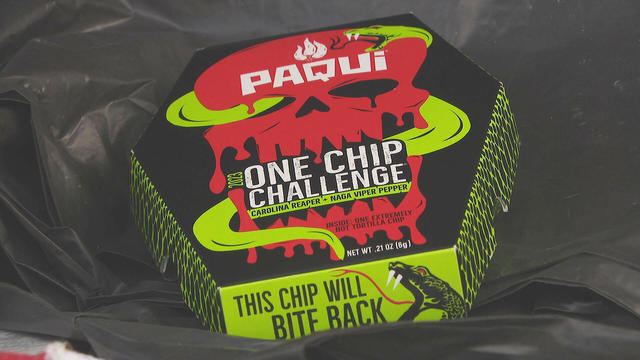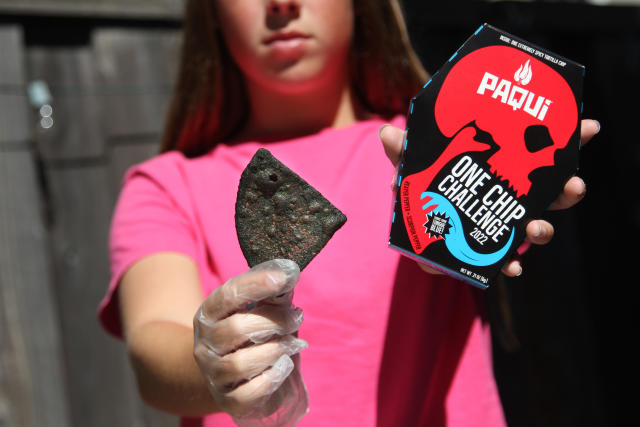Related Posts
In recent years, trying out spicy foods has become ever-increasingly popular. From extra-spicy sriracha sauce to ghost pepper flakes, there seems to be no end to the amount of spice that people want to take on. Unfortunately, one such product, the Paqui deadly one-chip challenge, resulted in the death of a young teenager.
A Worcester 10th grader, Harris Wolobah, passed away on September 1st, 2023, after eating a singular Paqui tortilla one-chip challenge. In response, Paqui, a subset of Hersey Co. from Texas, released a statement extending its condolences. Additionally, the company made concerted efforts to remove its one-chip challenge products from shelves the same year. The product was fully discontinued near the end of the year and forward into 2024.
On February 7th, 2024, authorities determined Harris’ cause of death. Later, on March 5th, the Worcester city clerk’s office received the official death certificate. In summary, it stated that Harris died from cardiopulmonary arrest, attributed to the failure of circulation and breathing. The certificate also noted signs of congenital heart disease, which may have increased his susceptibility to the spice in the chip.
What was the “One-Chip Challenge”?

Spicy food challenges are not new to American culture. People have always tried spicy foods, from hit shows like Hot Ones to local mom-and-pop-shop spicy wing challenges. The once-chip challenge was a marketing ploy made by Paqui. The challenge consisted of a $10 tortilla chip dusted in Carolina Reaper and Naga viper pepper powder.
The challenge’s goal was to eat the chip and last as long as possible without drinking milk or something to ease the pain. According to the company, the challenge’s packaging cautioned users of the dangers of eating extremely spicy foods. The statement indicated that the product was intended for adult consumption only. A Paqui spokesperson told CNN, “Paqui’s One Chip Challenge was intended for adults only, with clear and prominent labeling highlighting that the product was not for children or anyone sensitive to spicy foods or with underlying health conditions.”
Over time, the challenge became increasingly popular. As people tried it out for themselves, they posted reactions on social media, many of which went viral. Many kids began to see the challenge online, which prompted many of them to try it.
In the end, due to incidents such as the death of Harris Wolobah and the increasing amount of children ignoring warning labels, the company started a voluntary removal and discontinuance of their challenge product.
Could Paqui Be Held Liable for Their One-Chip Challenge?

In response to deaths and injuries from products, many people wonder if the companies involved can be held responsible. Many legal authorities commented on the Paqui chip incidents, claiming that it is widespread for people to prosecute.
The legalities surrounding manufacturers and consumers are complex in many cases, especially regarding food items safely enjoyed by others.
First, it’s important to note that Paqui promoted the one-chip challenge. The coffin-shaped box packaging specifically instructed customers to wait as long as possible after eating the chip before eating or drinking anything to ease the pain. Additionally, the Instructions encouraged customers to post their reactions on social media to promote its virality. The results were exactly as desired…the one-chip challenge became a viral sensation. That is until teenager Harris Wolobah died doing the one-chip challenge.
Despite the warning labels on the packaging, there is a strong argument that Paqui promoted dangerous activity for financial gain. Even though Paqui claims they never promoted their products to children, anyone searching the viral sensation could see teens participating in the trend. Consequently, it is likely that Paqui knew, or should have known, that teenagers were participating in the one-chip challenge. In fact, Paqui even admitted to being aware of reports of teens consuming their product.
The company promptly discontinued its product and publicly reported sympathy for the teen’s family. Faced with a lawsuit, it would likely be in the company’s best interest to opt for an out-of-court settlement to mitigate its responsibility for the incident while acknowledging the loss it caused.

